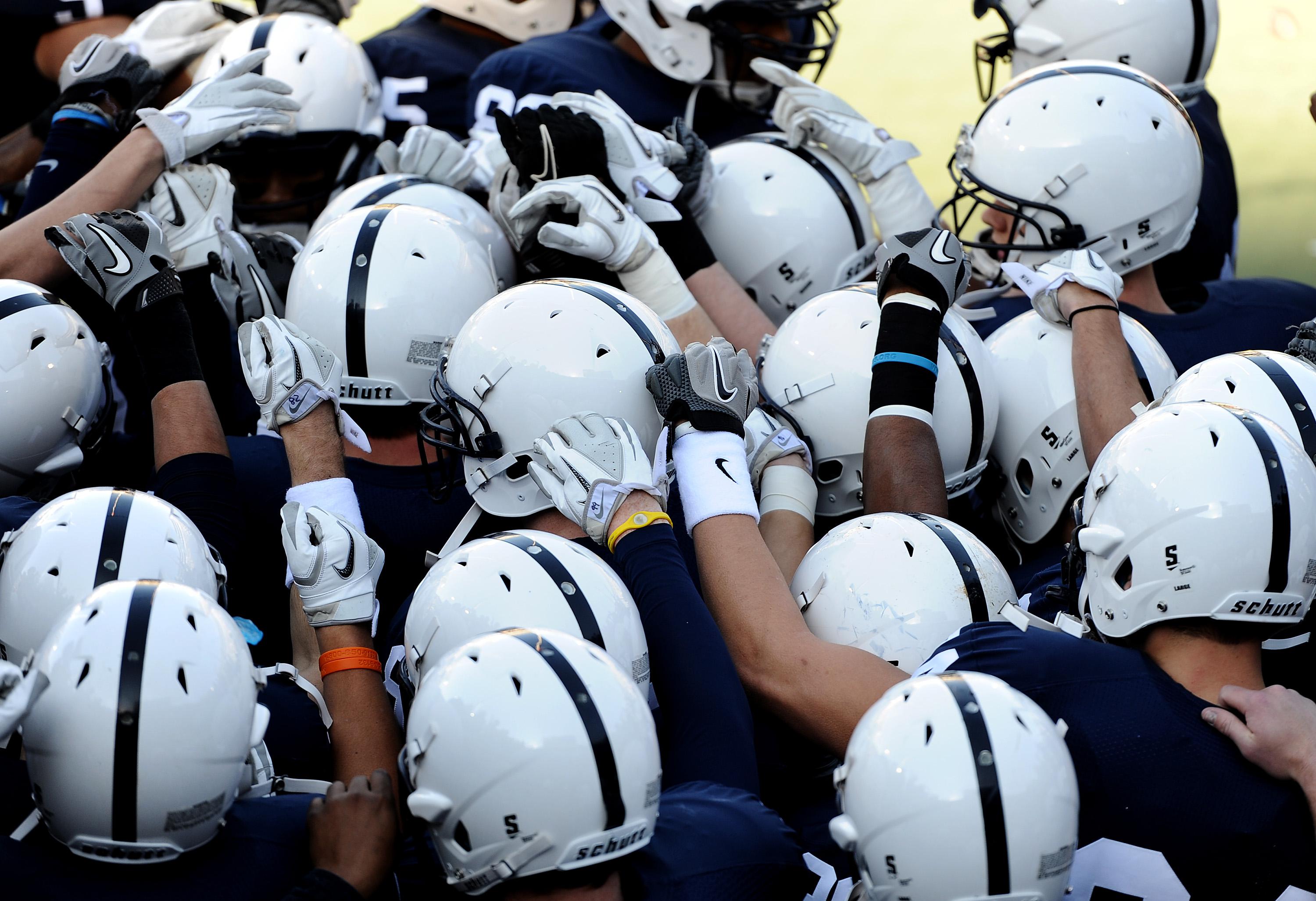Last Friday the Daily Beast pondered whether the inclusion of more women in Penn State’s male-centric football program might have prevented former assistant coach Jerry Sandusky’s alleged sexual abuse of young boys. Starting from the notion that all-male athletics—and especially the testosterone crucible that is football—tend to foment a restrictive, insular culture of loyal fraternity, the piece suggests that ladies, faced with the same situation, would have necessarily acted otherwise:
As one source close to Jerry Sandusky told The Daily Beast: “Had it been a woman who had walked in on that boy in the shower, I can guarantee it would not have resulted in anything other than a 911 call.”
There are two problems with this line of thinking. The first is the old “better angels of our nature” argument; namely, that women are somehow responsible for acting as moral police for men, illuminating our faults with the redeeming light of their sex-based goodness. I think we can go ahead and dispense with that fallacy. The second assumption, though related, is actually peskier. In the logic of this piece, not only are women tasked with doing things that any decent human being, regardless of gender, should do; they’re also assumed to be naturally immune to the kind of “patriarchal” culture on trial in the first place.
While I’m not from State College, I do come from an area in the South dominated by a similar football religiosity, so let me report: Women there can be just as unquestioningly devoted to Team and Coach as men can be. Being a woman (or anything other than a straight male, for that matter) does not automatically inoculate one against the seductive comfort of the huddle mentality, just as being a man does not ensure infection. Sure, women and other outsiders may be more sensitive to the dangers of groupthink, but that does not mean they possess some kind of innate defense against it either.
I definitely don’t mean to dismiss the piece entirely: I’m extremely wary of “boy’s club” culture, too, and the author’s impulse to find a pseudo-anthropological gloss for this mess is appealing. We should be wary of any social space that, by its design, limits itself to a very specific type of person—it’s an arrangement that can only molder from lack of fresh air. Still, nature does not, by itself, outweigh nurture. Doing the right thing against outside pressure requires more effort than that; but luckily, it’s a job that does not discriminate.
